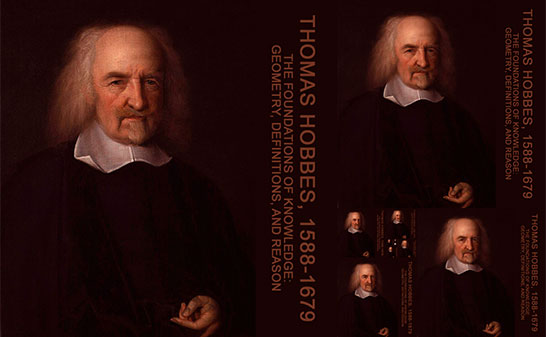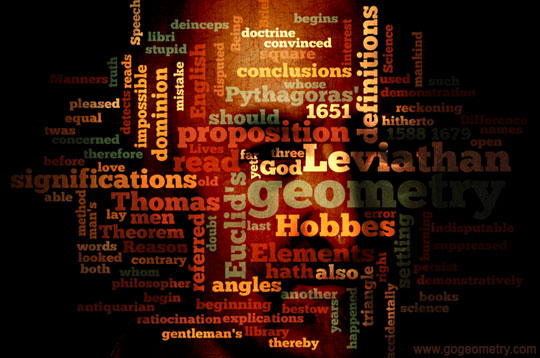|
|
|
Hobbes, Thomas.
1588-1679. English philosopher
"And therefore in
geometry (which is the only science
that it hath pleased God hitherto to bestow on mankind), men
begin at settling the significations of their words; which settling of
significations, they call definitions,
and place them in the beginning of their reckoning."
Leviathan 1651,
Chapter IV, Of Speech.

Hobbes and the Foundations of Knowledge: Geometry, Definitions, and Reason

"For there is not one of them that begins his
ratiocination from the definitions
or explications of the names they are to use; which is a method that
hath been used only in geometry,
whose conclusions have thereby been made indisputable................ .
For who is so stupid as both to mistake in geometry, and also to persist
in it, when another detects his error to him?"
Leviathan 1651. Chapter V, Of Reason and
Science.

"For I doubt not, but if it had been a thing contrary to any man's right
of dominion, or to the interest of men that have dominion, that the three angles of a triangle should be equal to two
angles of a square, that doctrine should have been, if not
disputed, yet by the burning of all books of
geometry suppressed, as far as he whom it concerned was able."
Leviathan 1651. Chapter XI, Of the
Difference of Manners.

Aubrey, John. 1626-1697. English
antiquarian. About Thomas Hobbes:
He was 40 years old before he looked on geometry; which happened
accidentally. Being in a gentleman's library, Euclid's
Elements lay open,
and "twas
the 47 El. libri I" [Pythagoras' Theorem].
He read the proposition "By
God", said he, "this
is impossible:" So he reads
the demonstration of it, which referred him back to such a proposition;
which proposition he read. That referred him back to another, which he
also read. Et sic deinceps, that at last he was demonstratively
convinced of that truth. This made him in love
with geometry.
In O. L. Dick (ed.) Brief Lives, Oxford: Oxford University
Press, 1960.


|
|